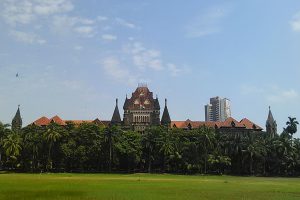High Court of Bombay: In a case where the petitioners were charged against unanticipated dues on a property by the Sales Tax authorities long after they had purchased the property, the division bench of B. P. Colabawalla and S.C. Dharmadhikari, JJ., held that even though the property was bought on an “as is where is basis” by the petitioners, they, having no knowledge (either actual or constructive) of the dues of the sales tax authorities before they purchased the said property, the sale tax authorities cannot recover their dues from the petitioners by enforcing their charge against the said property.
The petitioners purchased the said property pursuant to a sale conducted by the Nationalized Banks under the provisions of the SARFAESI Act, 2002. Petitioners contented that the Sales Tax Authorities cannot enforce their alleged charge on the said property purchased by the Petitioners as the alleged Sales Tax dues of the Defaulter Company were never disclosed to the Petitioners, and if at all the Sales Tax have any charge, it would have to be recovered from the sale proceeds which lie in the hands of the secured creditors i.e. the banks who had sold the mortgaged property. The Respondents submitted that once the sales tax dues were in arrears and they were always payable, then it is a charge on the properties of the dealer or any other person within the meaning of Section 38C of Bombay Sales Tax Act, 1969. This would enable the Sales Tax Department to go after the properties of the Defaulter Company and recover the sales tax dues. It was submitted that the sale being on ‘as is where is basis’ position, the Petitioners ought to have made their own inquiry to ascertain whether there were any encumbrances on the said property. Not having done so, the petitioners cannot contend that the claim of the Sales Tax Authorities cannot be enforced against the said property. Relying upon the Section 100 of the Transfer of Property Act,1882, which states that a ‘charge’ may not be enforced against a transferee if she/he has had no notice of the same, unless by law, the requirement of such notice has been waived, the Court rejected the aforesaid contention of the Respondents.
The Court noticed that the petitioner had merely purchased the said property which originally belonging to the Defaulter Company and which was mortgaged with the Respondents. Since, the Defaulter Company did not pay its dues to the Respondents, they, exercising their rights under the provisions of the SARFAESI Act, sought to enforce their security interest and sell the secured asset (the said property) to the Petitioners. Hence, the Court observed that the Petitioners can by no stretch of the imagination be termed as a successor of the business of the Defaulter Company to enable the Sales Tax Authorities to recover their dues from the Petitioners by enforcing their alleged charge against the said property purchased by the Petitioners under the provisions of the SARFAESI Act. However, it was clarified that its order and direction does not mean that the Sales Tax Authorities cannot proceed against the Defaulter Company. [Sonoma Management Partners Pvt. Ltd. v. Bank of Maharashtra, 2016 SCC OnLine Bom 9649, decided on 22.11.2016 ]

